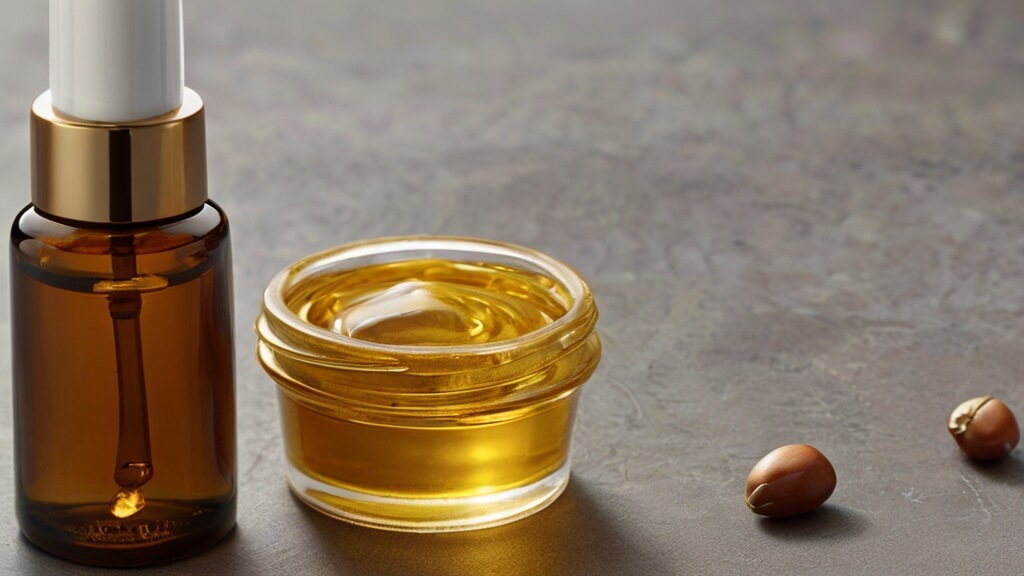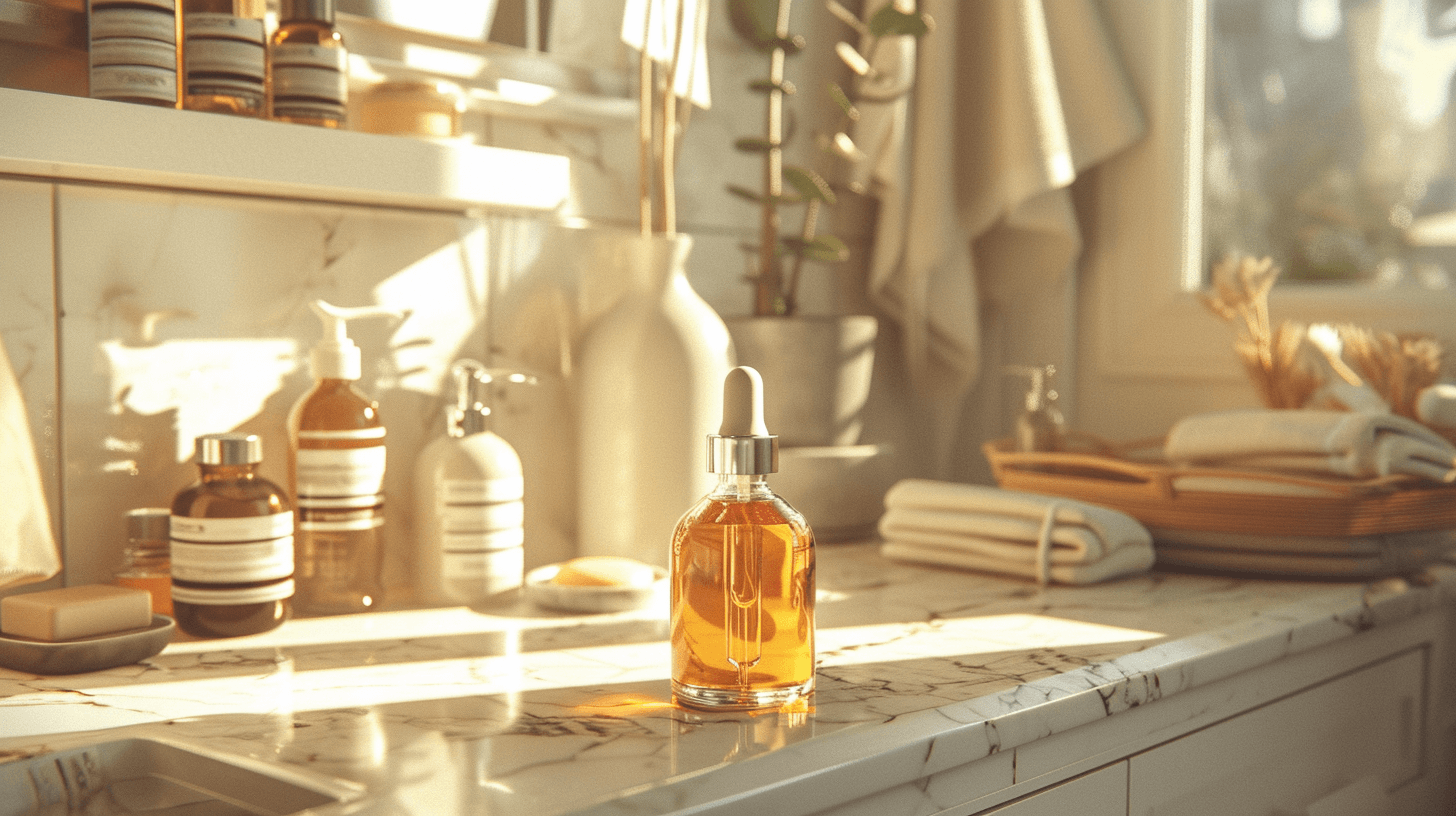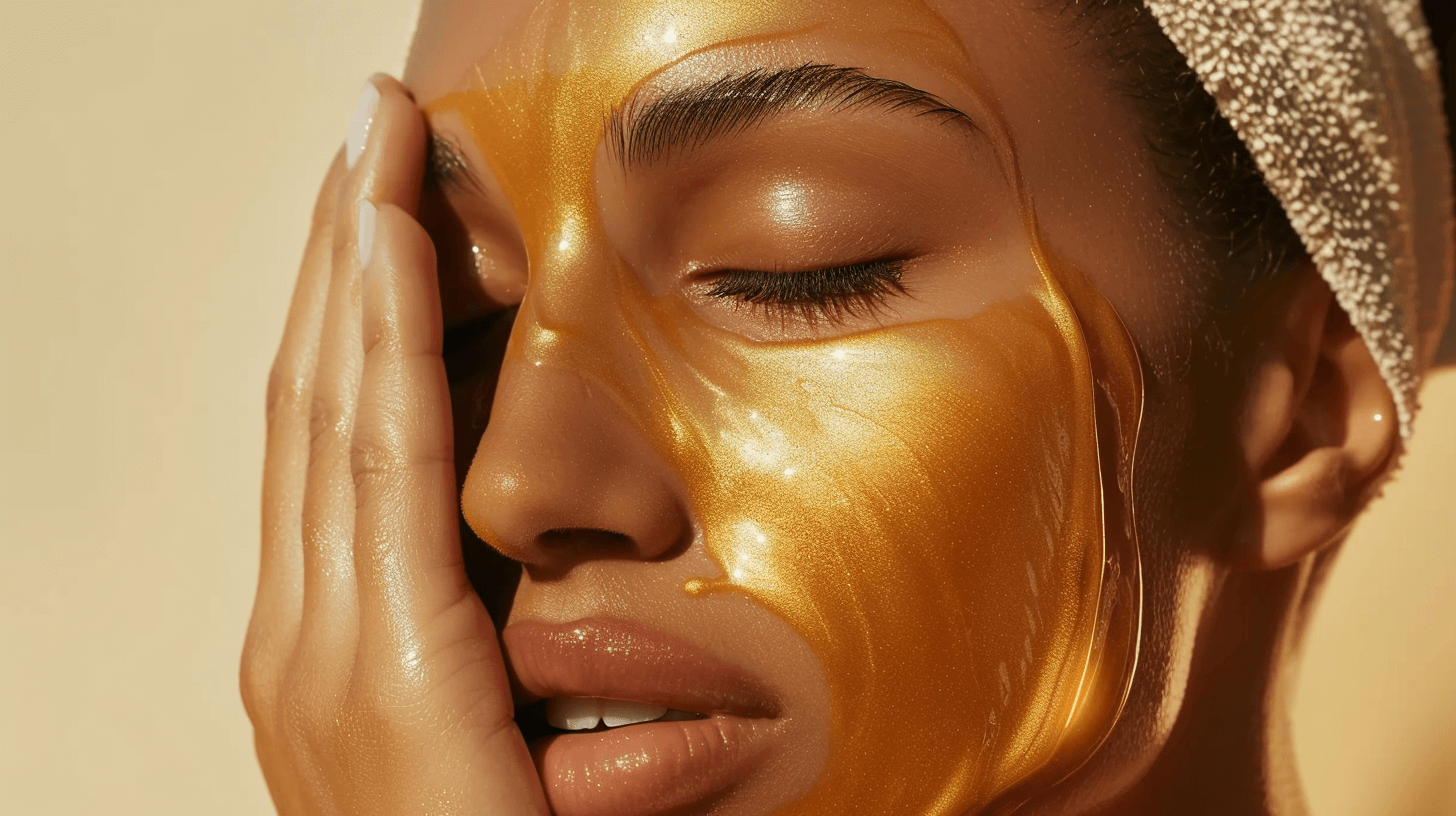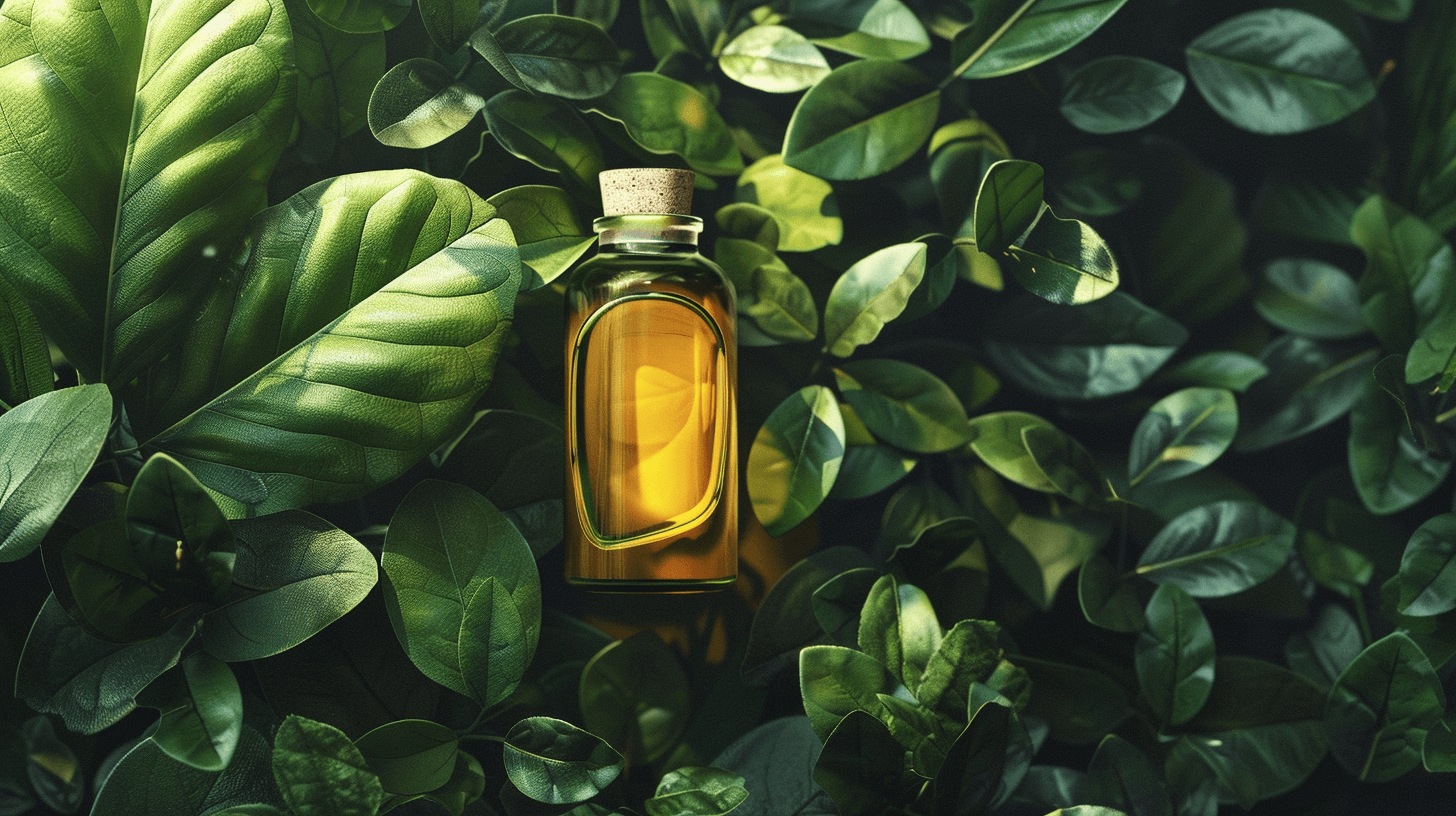
Amira Benhima
A passionate advocate for holistic wellness and natural beauty, is an accomplished author specializing in the benefits and uses of Argan oil, with years of experience exploring its wonders.
Key Takeaways
Imagine a world where you could tame the raging storm of teenage acne with a single drop of liquid gold. Well, maybe not quite that dramatic, but argan oil does hold some promise in the battle against those pesky blemishes. Its soothing properties may calm the storm on your skin’s surface, while its hydrating effects keep it from running dry. And that’s just the beginning. So, if you’re curious to discover more about how argan oil can help manage teenage acne, keep on reading. You won’t want to miss what’s coming next.
- Argan oil balances sebum production, reduces inflammation, and aids in healing acne.
- Its high vitamin E content promotes skin healing and protects from free radicals.
- Argan oil regulates sebum production and suits oily, acne-prone skin due to its non-greasy texture.
- Incorporating argan oil into skincare routine can improve hydration, sebum balance, and skin texture.
Understanding Teenage Acne

To properly understand teenage acne, it is crucial to recognize that it is a common skin condition affecting a significant majority of adolescents aged 12-24. Hormonal changes during puberty play a key role in the development of teenage acne. These changes stimulate the sebaceous glands to produce more sebum, an oily substance that helps keep the skin moisturized. However, when sebum production becomes excessive, it can mix with dead skin cells and clog the hair follicles, leading to acne breakouts.
Factors such as genetics, diet, stress, and skincare routines can also influence the severity of teenage acne. Adolescents with a family history of acne are more likely to develop it themselves. Additionally, certain foods, such as those high in sugar and dairy, have been linked to acne flare-ups. Stress can worsen acne due to its impact on hormone levels. Furthermore, using harsh or comedogenic skincare products can aggravate acne by further clogging the pores.
Effective management strategies for teenage acne involve gentle cleansing and the use of non-comedogenic products. Gentle cleansing helps remove excess oil, dirt, and bacteria from the skin without stripping it of its natural moisture. Non-comedogenic products are specifically formulated to not clog the pores, reducing the risk of acne breakouts. Incorporating these strategies into a daily skincare routine can help improve the overall condition of the skin.
In the next subtopic, we will explore the benefits of using argan oil for acne management. Argan oil is a natural oil that has gained popularity for its potential to improve various skin conditions, including acne.
The Benefits of Argan Oil for Acne

Argan oil offers numerous benefits for managing acne, making it an effective natural remedy for individuals looking to improve their skin condition. This oil has shown to be beneficial in reducing acne breakouts by balancing sebum production and preventing clogged pores. It contains antibacterial properties that aid in healing acne and reducing inflammation on the skin. Additionally, the high concentration of vitamin E in argan oil protects the skin from free radicals and promotes the healing of acne scars.
One of the main reasons argan oil is effective for acne management is its ability to regulate sebum production. Sebum is an oily substance produced by the skin that can lead to clogged pores and acne breakouts when overproduced. Argan oil helps to balance the production of sebum, preventing excess oiliness and reducing the occurrence of acne.
Furthermore, argan oil’s antibacterial properties contribute to its effectiveness in managing acne. It helps to kill the bacteria that can cause acne, reducing inflammation and promoting clearer skin. The anti-inflammatory properties of argan oil also help to soothe redness and irritation associated with acne.
Another benefit of argan oil for acne is its ability to promote the healing of acne scars. The high content of vitamin E in the oil helps to repair damaged skin cells and fade acne scars over time. Regular use of argan oil can improve skin texture, reduce redness, and promote a clearer complexion.
Argan oil is particularly suitable for individuals with oily and acne-prone skin due to its non-greasy texture. It absorbs quickly into the skin without leaving a greasy residue, making it an ideal choice for those with oily skin.
How to Choose and Use Argan Oil for Acne

When selecting and using argan oil to manage acne, it is essential to consider a few factors to ensure maximum effectiveness for your skin. First and foremost, make sure to choose 100% pure and organic cold-pressed argan oil. This type of oil is extracted from the kernels of the argan tree and retains all the beneficial properties for acne-prone skin. Additionally, opt for unrefined argan oil as it maintains its natural color, scent, and healing properties.
Before incorporating argan oil into your skincare routine, it is important to conduct a patch test. Apply a small amount of argan oil to a small area of your acne-prone skin and observe for any adverse reactions. This precautionary step will help you determine if argan oil is suitable for your skin type.
To target specific blemishes, argan oil can be used as a spot treatment. Simply apply a small amount of pure argan oil directly onto the blemishes to help reduce inflammation and promote healing. The anti-inflammatory properties of argan oil can help soothe and calm irritated skin.
Incorporating argan oil into your regular skincare routine is also beneficial for acne-prone skin. Mix a few drops of argan oil with your moisturizer to hydrate and balance oily skin. This will help regulate sebum production and prevent clogged pores, leading to a clearer complexion.
Incorporating Argan Oil Into Your Skincare Routine

To incorporate argan oil into your skincare routine, start by cleansing your face with a gentle cleanser. After patting your skin dry, apply a few drops of argan oil onto your fingertips and gently massage it onto your face and neck in upward motions. Allow the oil to absorb into your skin before applying any additional skincare products or makeup. Repeat this process twice daily for best results.
Benefits of Argan Oil
Incorporating argan oil into your skincare routine can be beneficial for managing teenage acne, as it provides hydration and helps balance sebum production. Here are four reasons why argan oil is a great addition to your skincare routine:
- Hydration: Argan oil acts as a natural moisturizer, keeping your skin hydrated and preventing it from becoming overly dry. This reduces the likelihood of acne breakouts in teenagers with oily or combination skin.
- Anti-inflammatory properties: Argan oil has anti-inflammatory properties that help soothe acne-prone skin, reducing redness and irritation. It can also calm down active acne breakouts, promoting a clearer complexion.
- Spot treatment: Using argan oil as a spot treatment allows you to target specific acne areas while keeping the surrounding skin hydrated. This helps to minimize the appearance of acne scars and promotes faster healing.
- Skin texture improvement: Regular use of argan oil can improve skin texture by making it smoother and more supple. It helps to minimize the appearance of acne scars, giving you a more even complexion.
Incorporating argan oil into your skincare routine can provide numerous benefits for managing teenage acne.
How to Apply Argan Oil
To effectively incorporate argan oil into your skincare routine, start by applying a few drops of the oil to your damp skin for optimal hydration and nourishment. Argan oil is known for its numerous benefits for the skin, including its ability to reduce inflammation and redness, moisturize dry skin, and promote a healthy, youthful complexion. Using argan oil as a night treatment can help repair and regenerate your skin while you sleep. You can also mix a few drops of argan oil with your foundation to achieve a dewy finish and enjoy added skin benefits throughout the day. Don’t forget about your hair! Apply argan oil to the ends of your hair to add shine, nourish, and protect your hair strands. For a natural exfoliation, combine argan oil with sugar to create a gentle scrub that will rejuvenate your skin. Incorporating argan oil into your skincare routine will help nourish and hydrate your skin, leaving it looking and feeling its best.
Other Natural Remedies for Teenage Acne

Using natural remedies can be an effective approach for managing teenage acne, and there are several options available that can help reduce breakouts and improve the overall condition of the skin. Here are some other natural remedies that you can consider incorporating into your skincare routine:
- Tea tree oil: This natural remedy has antibacterial properties that can help reduce acne breakouts in teenagers. It works by killing the bacteria that contribute to acne formation and inflammation. Dilute the tea tree oil with a carrier oil, such as jojoba oil, and apply it directly to the affected areas of your skin.
- Witch hazel: Known for its astringent properties, witch hazel can help tighten pores and reduce inflammation associated with teenage acne. It can also help remove excess oil from the skin, making it less prone to breakouts. Apply witch hazel to a cotton pad and gently swipe it over your face after cleansing.
- Aloe vera gel: Aloe vera gel is soothing and anti-inflammatory, making it a gentle option for calming irritated teenage skin and reducing redness. It also has antimicrobial properties that can help prevent bacteria from causing further breakouts. Apply a thin layer of aloe vera gel to your skin and leave it on overnight.
- Green tea extract: Green tea contains antioxidants that can help fight acne-causing bacteria and reduce inflammation in teenage acne. You can apply green tea extract topically or drink green tea regularly to reap its benefits. To use it topically, steep a green tea bag in hot water, let it cool, and apply the liquid to your skin using a cotton pad.
Maintaining Clear Skin: Tips and Tricks

For teenagers looking to maintain clear skin and keep acne at bay, there are several effective tips and tricks to incorporate into your skincare routine. Along with incorporating argan oil, which has been shown to reduce inflammation and prevent breakouts, there are other practices you can follow to promote clear, healthy skin. Take a look at the table below for some helpful suggestions:
| Tips and Tricks | Description | Benefits |
|---|---|---|
| Cleanse Twice Daily | Cleansing your face twice a day, morning and night, helps remove excess oil, dirt, and bacteria from your skin. | Reduces sebum production and prevents clogged pores. |
| Use Non-Comedogenic Products | Choose skincare products that won’t clog your pores, such as those labeled non-comedogenic. | Prevents acne breakouts and allows the skin to breathe. |
| Moisturize Regularly | Keeping your skin moisturized is important, even if you have oily skin. Look for lightweight, oil-free moisturizers. | Balances sebum production and prevents dryness. |
| Avoid Touching Your Face | Touching your face can transfer bacteria and oils from your hands, leading to breakouts. | Minimizes the spread of bacteria and reduces the risk of acne. |
| Protect Your Skin from the Sun | Sun exposure can worsen acne and lead to acne scars. Use a broad-spectrum sunscreen with SPF 30 or higher. | Prevents inflammation and protects against sun damage.
Incorporating these tips into your daily routine, along with the use of argan oil, can help you maintain clear skin and manage teenage acne. Remember to be consistent and patient, as it may take time for these practices to show results. Stay committed to your skincare routine, and soon you’ll be on your way to clearer, healthier skin.
Frequently Asked Questions
Can Argan Oil Get Rid of Acne?
Argan oil is an effective alternative for acne management. It is a natural remedy that can be incorporated into your skincare routine. Its benefits include moisturizing the skin without clogging pores, reducing redness and irritation, and preventing acne-causing bacteria. For teenage acne, argan oil can be a valuable addition to your teen skincare tips. It is non-comedogenic, meaning it won’t worsen oiliness. Consider using argan oil as part of your DIY acne treatments to prevent acne scars and benefit from its acne-fighting properties.
What Is the Disadvantage of Argan Oil on Face?
The potential disadvantages of using argan oil on your face include the risk of potential allergic reactions, excessive oiliness, and clogged pores. It may also take some time to see results, and it could interfere with other acne treatments you may be using. Some individuals may experience skin irritation, and there is limited scientific research on its effectiveness. Additionally, argan oil may not be as cost-effective compared to other remedies, and there is a chance that it could worsen acne instead of improving it due to individual variations in effectiveness.
Is Argan Oil Good for Kids Skin?
Yes, argan oil is good for kids’ skin. It is a natural remedy that can be incorporated into their skincare routine. Teenagers often experience hormonal changes that can lead to acne, and argan oil can help manage this by moisturizing the skin without clogging pores. It is non-comedogenic, meaning it won’t block the pores, and its healing properties can prevent acne scars. Using argan oil as part of a teenager’s skincare routine can promote healthy skin and boost their self-esteem.
What Oil Is Best for Acne Prone Skin?
Tea tree oil benefits acne-prone skin due to its antibacterial properties. Jojoba oil benefits acne-prone skin by balancing oil production. Essential oils like tea tree, lavender, and rosemary can be helpful for acne. Natural remedies for acne include a healthy diet, proper skincare routine, and DIY face masks. To prevent acne breakouts, avoid foods that may trigger inflammation. Look for non-comedogenic oils and ingredients like salicylic acid and benzoyl peroxide in skincare products.
Related Articles
Topical Argan Oil Application for Acne
Get ready to discover the golden secret to banishing acne with topical Argan oil that will leave you wanting more.
Vegan Argan Oil Skin Moisturizer Brands
Looking for a vegan argan oil skin moisturizer brand that will leave your skin feeling nourished and hydrated? Find out which top brand starts with the letter 'F'!
Blending Argan Oil With Other Acne Remedies
Knead your way to clearer skin as we explore the powerful combination of argan oil and other acne remedies, revealing the secrets to a healthier complexion.


